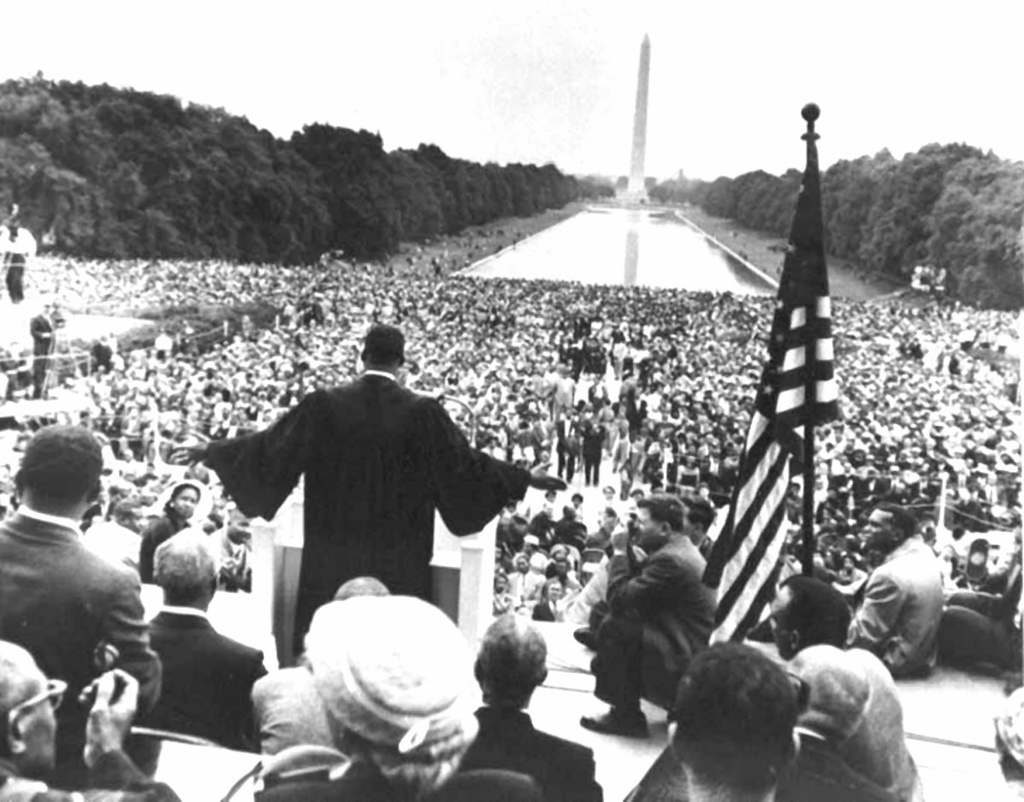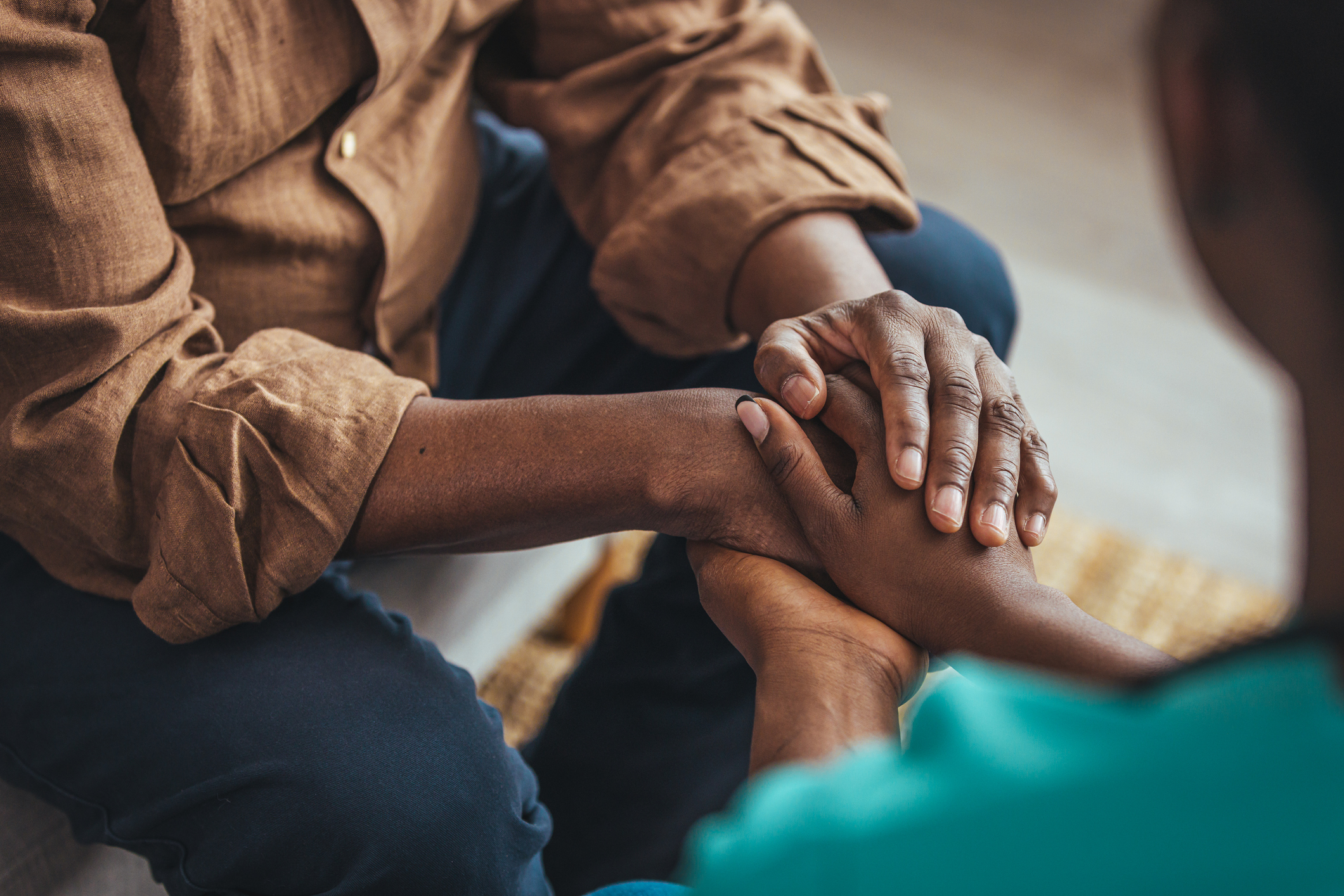Equity, Diversity, and Inclusion
On Dr. Martin Luther King Jr. Day, Looking Back on Tomorrow’s Promise
Today Social Current recognizes and honors the birth, life, and dream of Dr. Martin Luther King Jr. Dr. King’s passion and relentless work for justice, equity, and improved lives for everyone continues to be a clarion call for each of us today. Today, we take the time to remember Dr. King’s enduring fight for justice. We also challenge ourselves as leaders to renew the spirit and intentionally lean into our equity journeys in ways that honor the legacy of Dr. King. Today is a time to remember Dr. King’s fight for the freedom, equity, and dignity of all races and peoples through nonviolent means and measures.
Although we have come a long way in making King’s dream a reality, we still have much work to do to create a truly equitable and inclusive society for all. Social Current is committed to work that will realize our shared dream—an equitable society where all people can thrive.
—Jody Levison-Johnson, president and CEO, Social Current
The Fierce Urgency of Now
On April 4, 1967—exactly one year before he was assassinated—Martin Luther King Jr. gave what many contemporaries considered his most controversial speech at Riverside Church (“Beyond Vietnam: A Time to Break Silence” audio recording | written transcript), which largely focused on the need to accelerate social justice in the U.S., rather than accept the hypocrisy of a foreign affairs strategy meant to advance freedom and justice overseas:
“We are confronted with the fierce urgency of now. In this unfolding conundrum of life and history, there is such a thing as being too late. Procrastination is still the thief of time. … This is no time for apathy or complacency. This is a time for vigorous and positive action.”
This urgency—and procrastination—continues. African American and other historically marginalized communities have been ravaged by the COVID-19 pandemic and subsequent economic upheaval. The mass racial unrest and social uprisings in 2020 were in response to the ongoing systemic racism evident in police brutality, the justice system, and health inequities, yet little has changed since then. Black communities are doing their best to protect children and adults against these adversities, but self-determinism is not enough. Action must also be made by those who benefit from a culture of white supremacy.
“The importance that we all must support each other along the equity, diversity, and inclusion journey is critical regardless of race. Still, the need to recognize the historical trauma, direct marginalization, and dismissal of BIPOC individuals and communities over the centuries cries out for meaningful and authentic action on the part of our white brothers and sisters,” shared Undraye Howard, senior director and special advisor to the CEO for equity, diversity, inclusion and engagement at Social Current.
Dr. King’s Vision in Our Present
As you reflect on Martin Luther King, Jr.’s birth, we encourage you to learn more about his legacy and its continued relevance today, to seek out celebrations of his life, and to participate in positive social action to fulfil his vision of a just and free society.
The Moral Universe: Evaluating Progress Across the Arc of MLK’s Dream to America’s Reality Today
(Common Dreams, Milwaukee Independent, April 6, 2021 | CC BY-SA 3.0)
April 4 [2021] marked the 53d anniversary of Dr. Martin Luther King’s assassination. Over half a century. Has America come any closer to his dream?
Given that January is National Poverty Awareness month, it is important to note the emphasis that Dr. King placed on economic justice. The COVID-19 pandemic has not only illuminated and exacerbated health inequities but economic ones as well. When the economy shut down, Black and Latinx populations were the most likely to be front-line workers, the least likely to be able to work from home, and they suffered the largest loss of jobs.
“The level of economic violence suffered daily by poor and low-income families is immoral and unnecessary. Millions of Americans still lack the basic right to adequate health care. Dr. King’s legacy has helped to inspire a new Poor People’s Campaign, giving voice to the 140 million low income and impoverished Americans who struggle to survive,” says this article that evaluates our progress toward Dr. King’s dream.
The King Philosophy
(NONVIOLENCE365®, The King Center)
The King Center recommends embracing the six principles of nonviolent social change:
- Information Gathering
- Education
- Personal Commitment
- Negotiation
- Direct Action
- Reconciliation
Learn more by visiting The King Center website.
Workshops, EDI Collaborative, and One-on-One Support from Social Current
Social Current offers a continuum of opportunities to support organizations in their unique equity journeys.
For organizations getting started with EDI, Social Current is offering four sessions of its popular workshop, Advancing EDI for a More Perfect Union in 2022. This workshop lays the groundwork for participants to understand their personal relationships with EDI and organizations’ maturity, the historical context of racism, and how to build organizational EDI action plans. Organizations are encouraged to enroll multiple staff for a collaborative approach. Register now for workshop sessions in March, June, September, and November.
If your organization is seeking a more intensive experience and values connecting with other leaders and organization engaged in the same work, Social Current is offering a 15-month EDI learning collaborative from April to June 2022.
For organizations seeking customized or one-on-one support, Social Current offers a variety of tailored EDI consulting services. Contact us to learn more about how Social Current consulting can support your organization.


